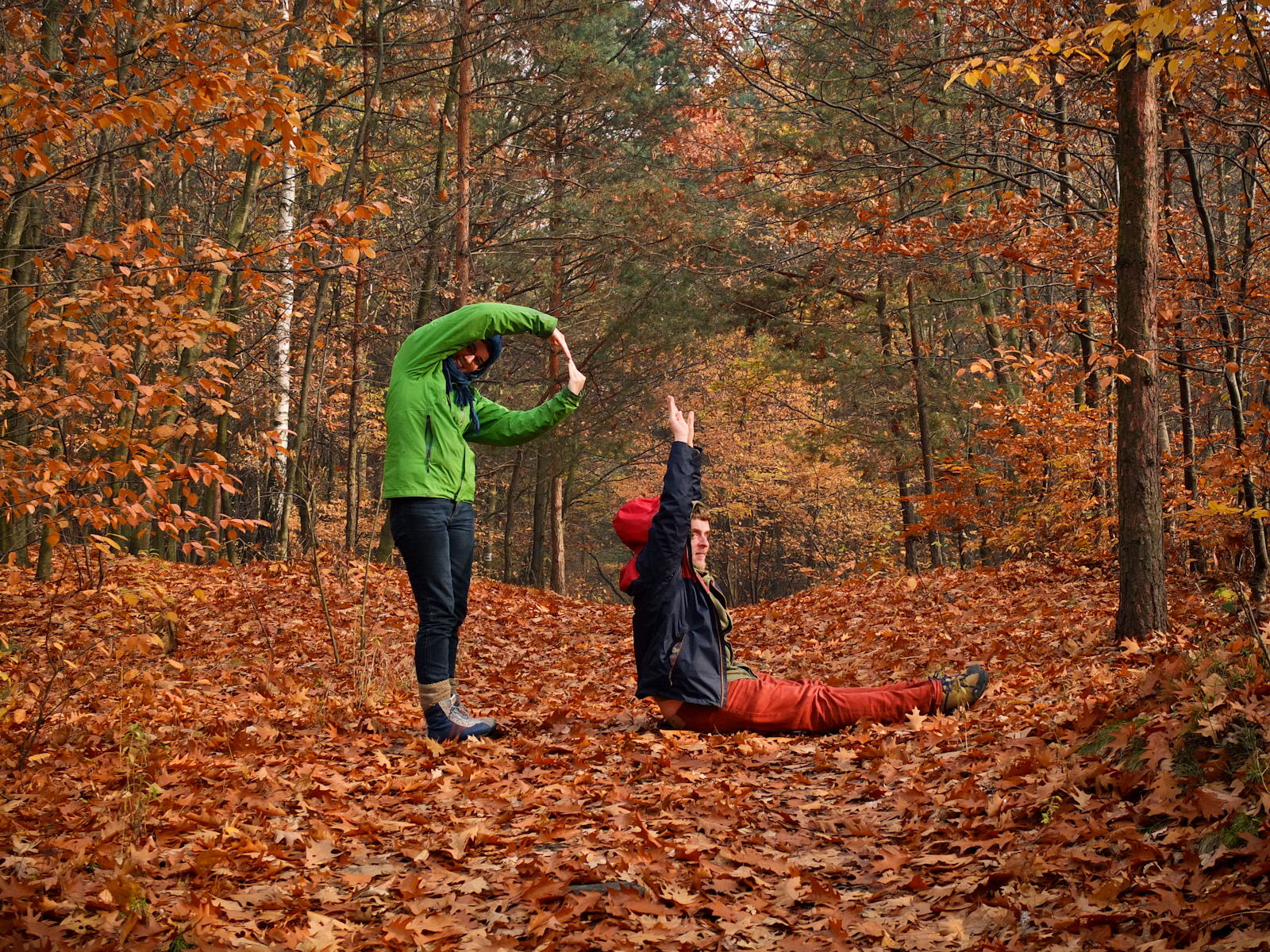
Unexpected art of Minsk
For the last 10 days we’ve been in Minsk, Belarus. Being here reminds me of how Poland was early in the ’90s, when the plastic, colourful world of empty satisfaction from buying stuff you don’t need hadn’t yet replaced the grim, grey world of pissed-off, grumpy people drowning in mud, being so frustrated with lack of opportunities. For most of the time, the weather here has been more grey than you can imagine, with low hanging clouds, freezing drizzle, dense fog… in such weather, you have to keep the lights on inside your house even though the daylight still lasts 10 hours. People here don’t have perspectives either. They need to work very hard for really little money and grim, concrete-paneled communist blocks are still being built and partly covered with pale pink or green paint. If you ask someone a question and don’t articulate your words clearly enough, the reaction more often than not, will be What?! And, stuck deep in this kind of environment, which only lurks, waiting to bring up the worst moods from the gloomiest parts of your psyche, we discovered some amazing art. But first, look at a couple of pictures to get the atmosphere.
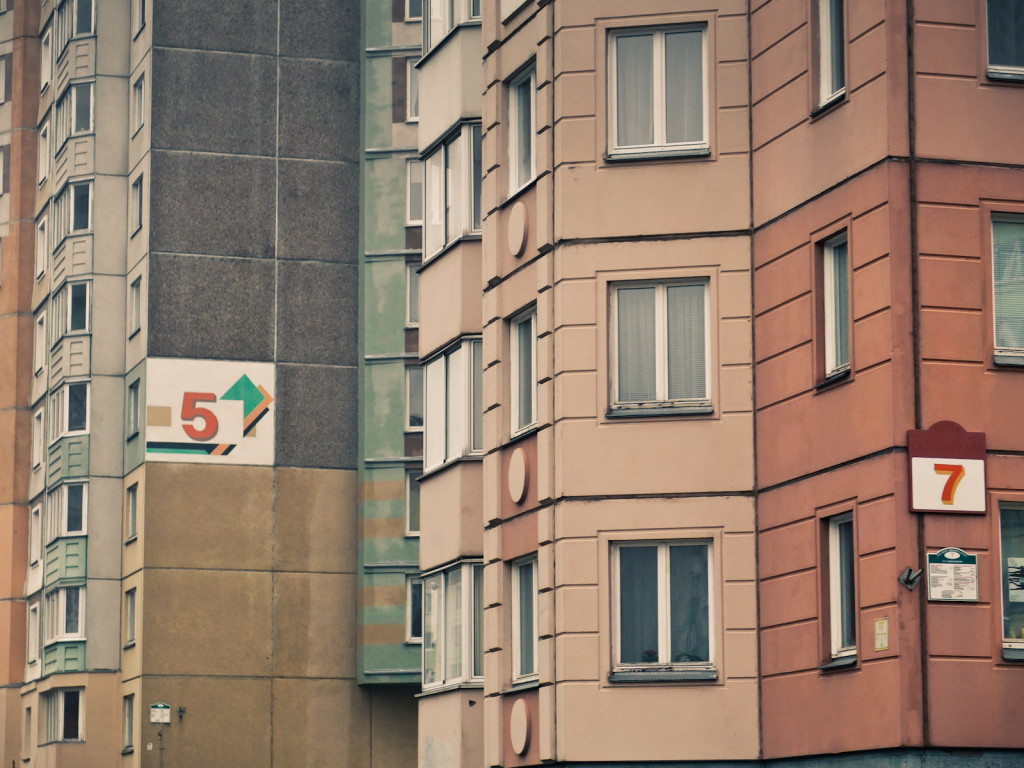
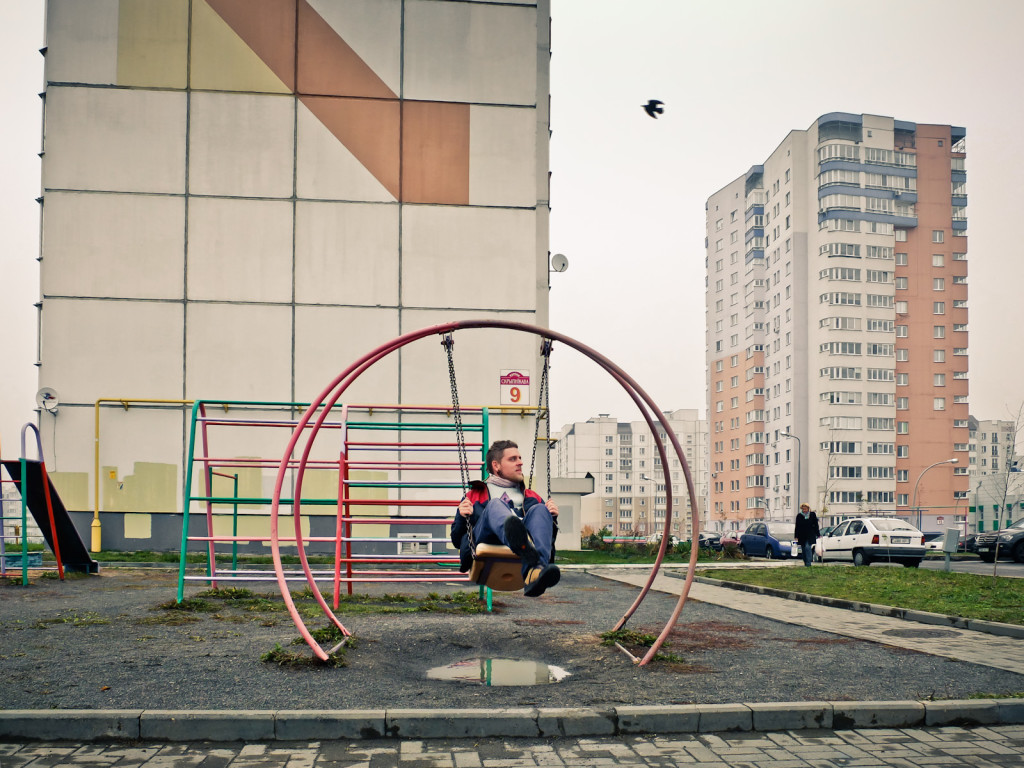
Photo credit: Alexander Mazurkevich
Please note: what you’ll see and read in this article is the worst of Minsk just as we experienced it. It doesn’t mean that all of Minsk and Belarus are like this. Come here in the summer.
Belarus Free Theatre
For me, the performance started not in the theatre but when we left home. It was before 7pm. Already completely dark, 7°C (it had just gotten warmer), moderate but persistent rain. People in grey jackets, wearing grey, wet masks of tired grimness. Our trolleybus left a minute before it should have, and we of course were on the stop just on time because here we always do everything not to be outside a minute longer than necessary. The next trolleybus was supposed to come 20 minutes later, but here a marshrutka arrived. It was empty and we had opened the front door to ask about the route, now we didn’t know if we should get in to sit with the driver at the front seat, or get to the back. Happier, happier! he said (“If you’re happy, you walk faster” – my friends are explaining me now that sometimes people use this phrase to hurry someone) Sorry, we’re not from here, I replied. At work you work, you can rest at home! he said, we’re 15 minutes late. Fucking jams everywhere. People going from work, to villages, to their dachas, to the forests, bands of idiots. Driving like fucking dumbasses, stopping, taking hundreds of people to their cars, out of their cars, you have to wait, then they suddenly turn, they drive like crazy, no brains! People, people everywhere… This monologue, not really directed to me but not to himself either, lasted about 5 minutes. And you, where you’re from? Poland and Australia?! Fucking hell! Coming here from Australia… you sit quietly there, nobody touching you, all’s good… here everybody’s like wild animals, just one big crowd of animals, jungle, you don’t know what tomorrow brings… And how’s Poland now? OK? That’s good… How’s the president? Oh, elections? How did they go, what kind of president is he? Completely new, really? Here, the same president for 20 years, now his son is growing up, he’s taking him everywhere with him, soon the son will become the president, fucking circus…
We were the first to arrive at the meeting point, thanks to the marshrutka being so fast. We were supposed to meet by a shop, but it was still raining so we got inside. It was a typical communist building, with concrete panels that looked modern 50 years ago, pink and violet fluorescent lamps, bad choice of food and old, grumpy women with sparse moustaches wearing funny aprons to work. We waited by a separate counter selling only alcohol. An old beast in an apron was staring tiredly out the window to turn her eyes onto equally fatigued customers wearing sweaters in the worst shade of beige, damp jackets and cheapest hats from the market, arriving for yet another bottle of spirit. One of them was crying. She was a very tired, old-looking woman with hair like thin, dry straws stuck together, eyes swollen like after a boxing match and tears, one by one gathering with drops of rainwater and dragging them off her face. I want to drink, I want to get drunk and you know why? she cried loudly, because I want to forget how terribly hard it is to live!
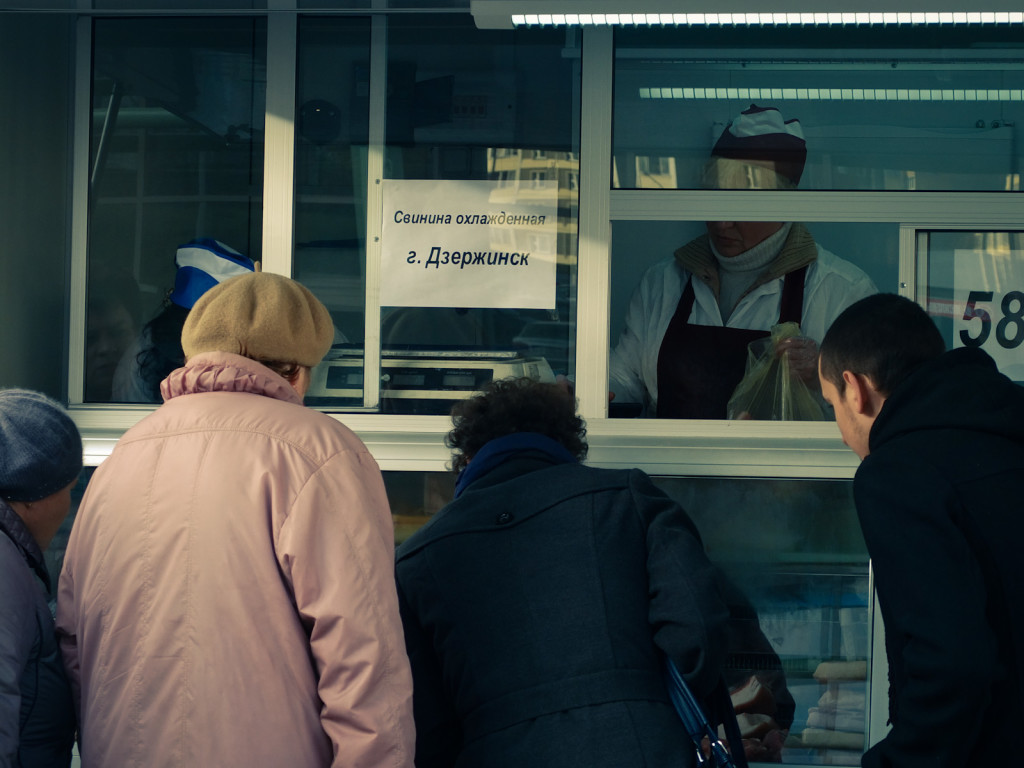
At a market in Minsk. Everyone is very interested in how the cold pork from Dzerzhinsk (58,000 BYR) looks like.
When people gathered, someone led us to the garage in which the theatre is located these days. Belarus Free Theatre is a world-famous underground theatre group that secretly and free of charge (pay-as-you-feel) stages plays banned by the censors of Belarussian dictatorship. It thus allows Belarusians and people abroad a unique chance to learn and understand issues the activists, artists and other victims of oppressive governments face here and around the world. Please do! said Victoria Biran, one of theatre’s members and actors when I asked if we could write about them on our blog, it will only make us safer! Some time ago, when police arrested all the performers and audience during a play it became an international scandal. It makes the authorities more powerless in their attempts to threaten us. In Belarus, before elections there’s always a little thaw, for example now we had a Queer Fest and a lot of art events but now as the elections passed, we are waiting for some harassment to happen… Just please don’t say where the play took place – we constantly have to change places, look for new spaces to stage our plays. We have to encourage our spectators to bring passports with them because police interrupts our performances, makes life hard for us before telling the landlord that he’ll either evict us or lose his land. That’s why our audience is so young – older people don’t use internet so it’s hard for us to get in touch with them. And this is too bad as we’d love our message to reach to older generations, too. Yeah… It’s hard in here. But at least not as bad as in Russia – they have it much harder now.
The play, titled “Discover Love” (directed by Nikolay Khalezin), is a part of a campaign against what UN calls enforced disappearances – cases when opponents of regimes are kidnapped and often killed by “unknown offenders”. It tells a (real) life story of Irina Krasovskaya, a woman born in a small village in USSR, whose husband disappeared in 1999 after supporting Belarusian democratic opposition. Garage theatre, with 40 spectators, means that almost nothing separates you from the actors, the energy is just spinning around the room, you see every wrinkle by their eyes when they smile with joy in childhood scenes, and tears in their eyes when they tell stories of the horrible experiences. And you also find yourself smiling wide and laughing when the early scenes filled with warmth and humour smuggle information on how the consciousness and personality of a Soviet person was shaped – something useful for outsiders but also for those Belarusians who never thought much about the mechanisms of Soviet propaganda. And, when Irina misses her husband like mad, having no idea if he’s still alive or not (they have never found his body) and the story of the Polish priest Jerzy Popiełuszko killed by the communist Security Service is told, you find that your eyes are also filled with tears. You understand now. You understand the drama people around the world experience and how lucky you are you haven’t had to survive anything like this.
The great acting takes you straight into the Soviet Union and then the wild ’90s with the stage almost bare, smartly written play lets you learn and understand so much, not only about the enforced disappearances but also about life in the USSR, the wide alleys, back streets and dead-ends of family life and much more. The whole room vibrates with emotions. Beautiful, alive, touching, though-provoking, deeply engaged — art.
Dakh Daughters
A day before that, we went to see a Ukrainian group – Dakh Daughters. They stage dark cabaret performances, heavily based on serious and famous poetry, mixed with Ukrainian folk (one of their songs might be the first Hutsul rap ever) and influences from modern music and other arts. Each of their songs is like a separate chapter of a whole story – a story showing how powerful these 7 women are, faced by chauvinism, the evil in people, the oppression of Ukrainian freedom fighters, the short-sightedness of people who started a war in the 21st century in the eastern Ukrainian region of Donbass. The powerful sounds produced by acoustic, classical instruments treated in most surprising ways, their powerful looks in burlesque-like make-ups tuned a bit to produce an impression of anger and frustration but ones that give strength and willingess to change the world around, vibrated through the concert hall of Minsk Truck Factory’s Palace of Culture like a tornado, sometimes making you laugh, but often enough – shaking you to the bone. This is an art that transmits a message saying “People, wake the fuck up, stand up and make an impact!” Or at least I hope that this it what it does, you interpret is however you want, after all, it’s all poetry.
[youtube http://www.youtube.com/watch?v=IHJprqxIwdc] Dakh Daughters’ most famous video, a comment on the war-torn region of Ukraine
[youtube http://www.youtube.com/watch?v=lH3YDHVaR_s] Dakh Daughters’ full concert, very similar to the one we’ve been to (except that that one was with live subtitles!)
The sun
Then, today, suddenly the sun came back and showed us the endless horizons of possibilities that stand in front of the Belarussian people.
Some street-art
Being a fierce opponent of stereotypes, and realising how they are created, I need to admit that what I wrote above is just a very one-sided view of Minsk, a subjective projection of my dark but sarcastic mood caused by the weather and interacting with the Soviet-alike part of Minsk’s society. But Minsk does have many other faces, some of which you can find below.
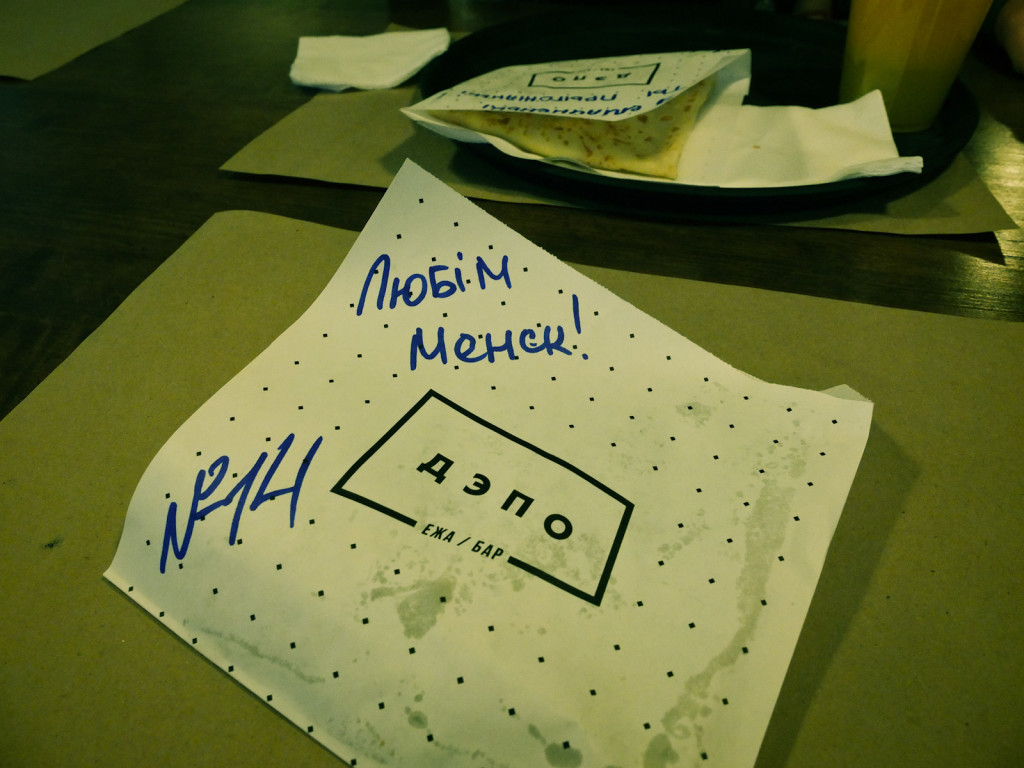
Pancake place. The thing says “We love Minsk”, in Belarussian. Hipsters are supposed to be the last people amongst whom it’s fashionable to speak this language, slowly dying being replaced by Russian.
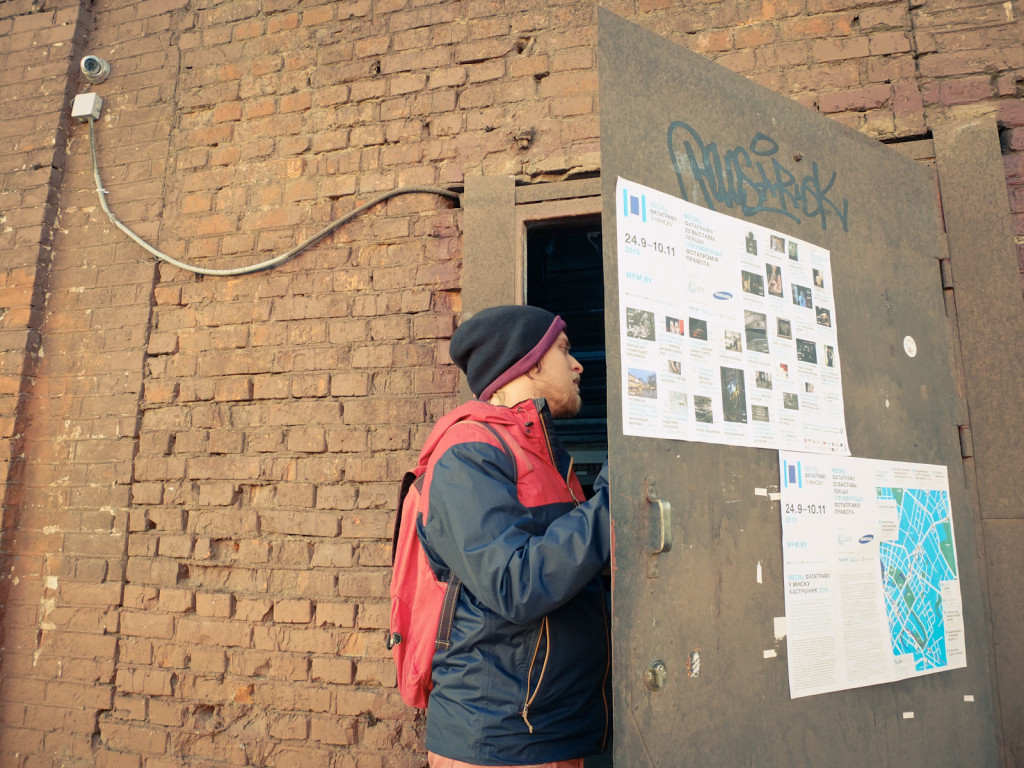
Entering ЦЕХ art space. Have a sunny day!
Be sure to check out our twin piece on Minsk brought to you by the perspective of Wendy: an outsider, an Australian stepping into the post-Soviet world for the first time. Read on about Belarus here.

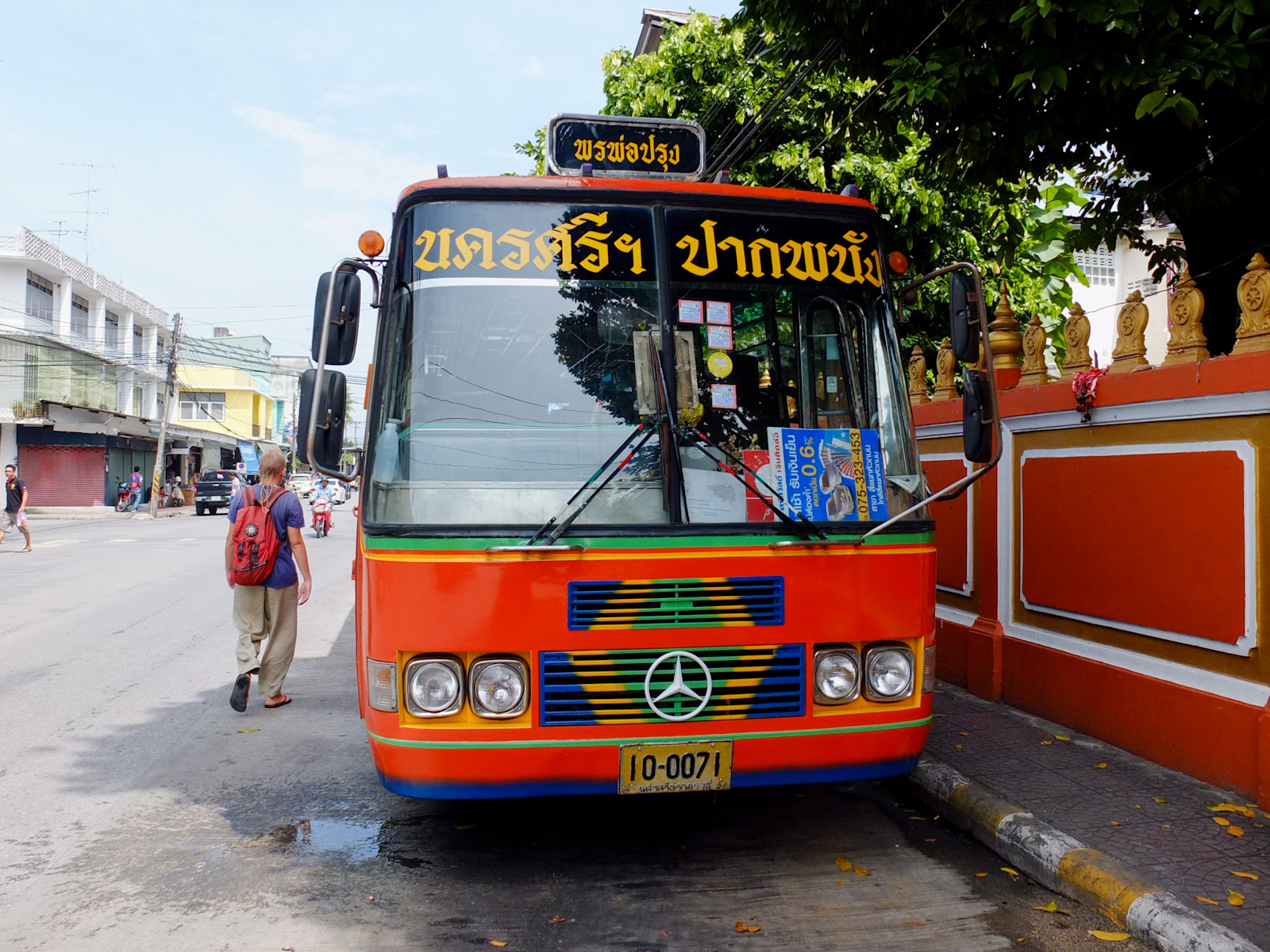
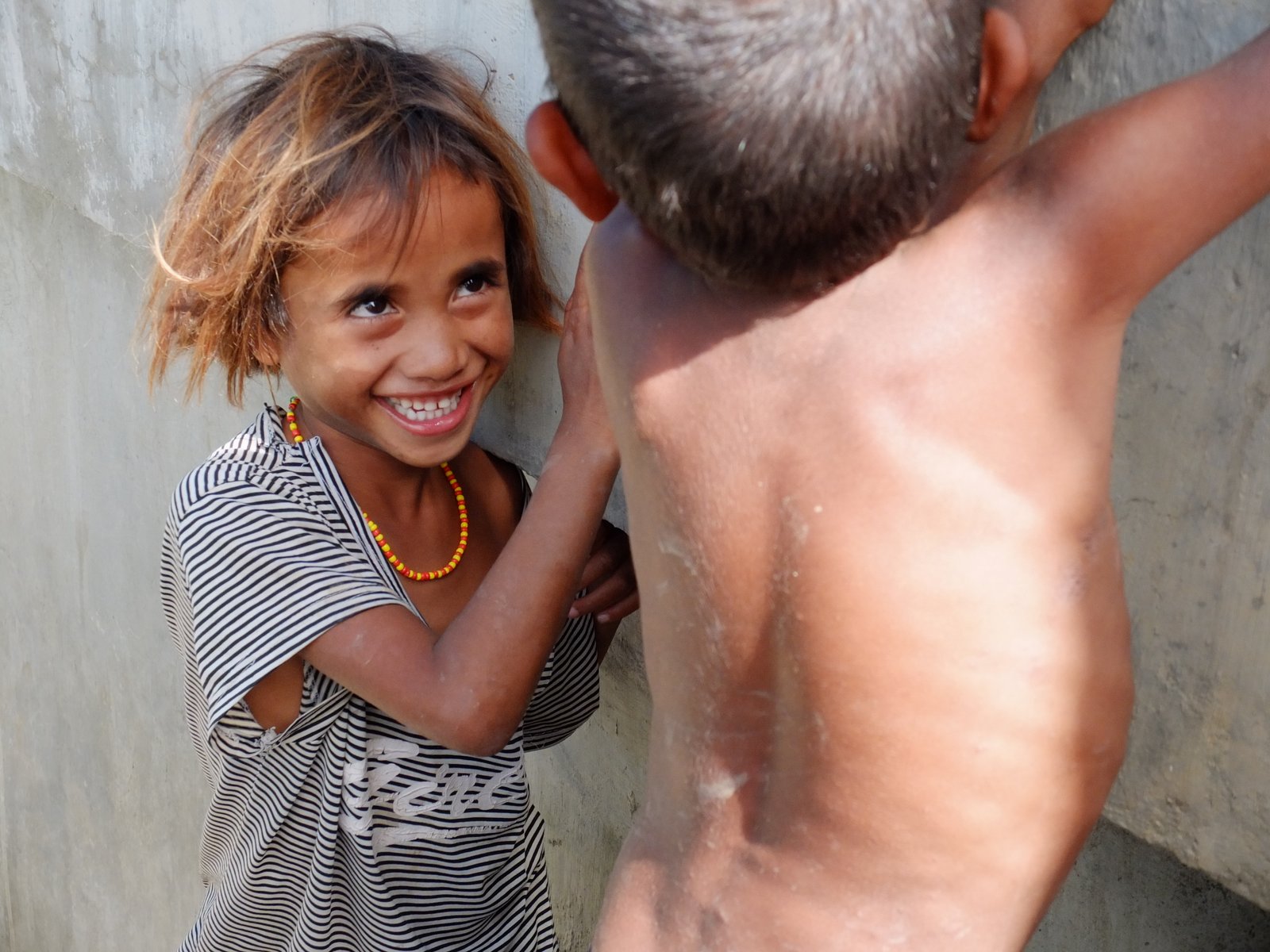
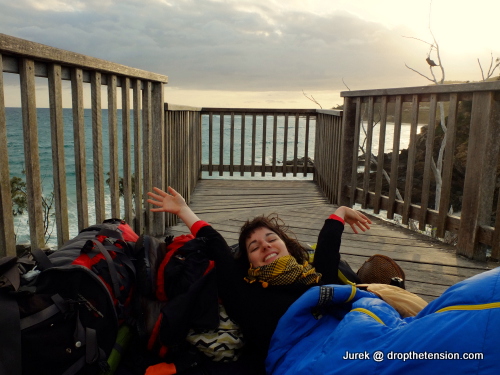
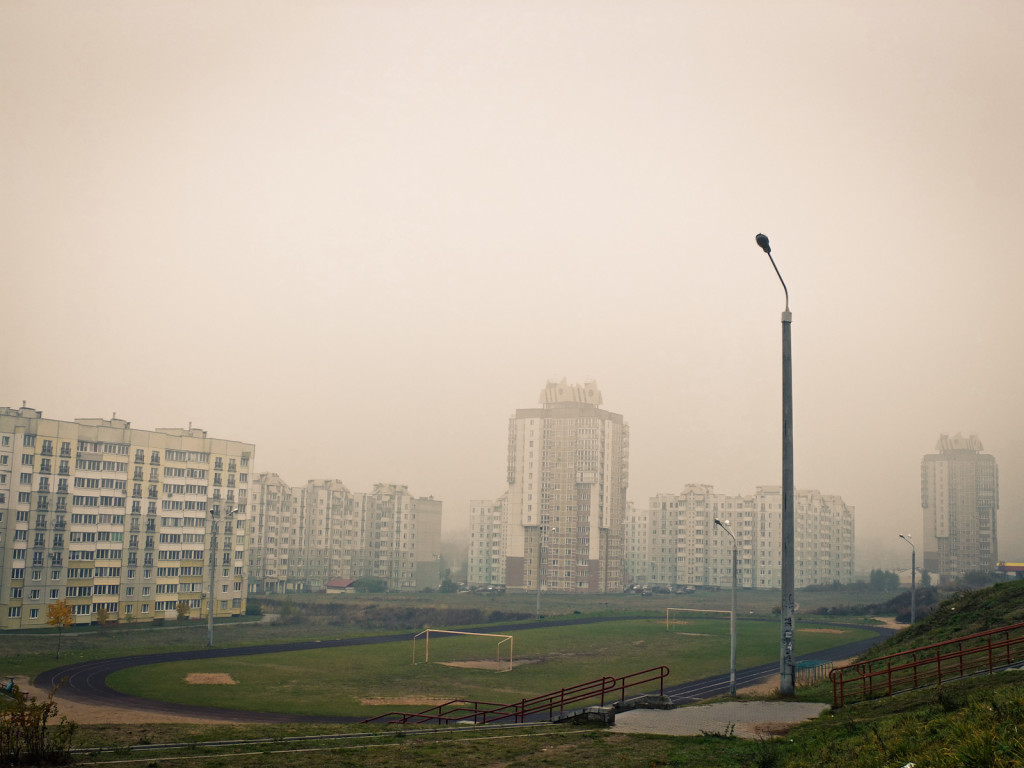
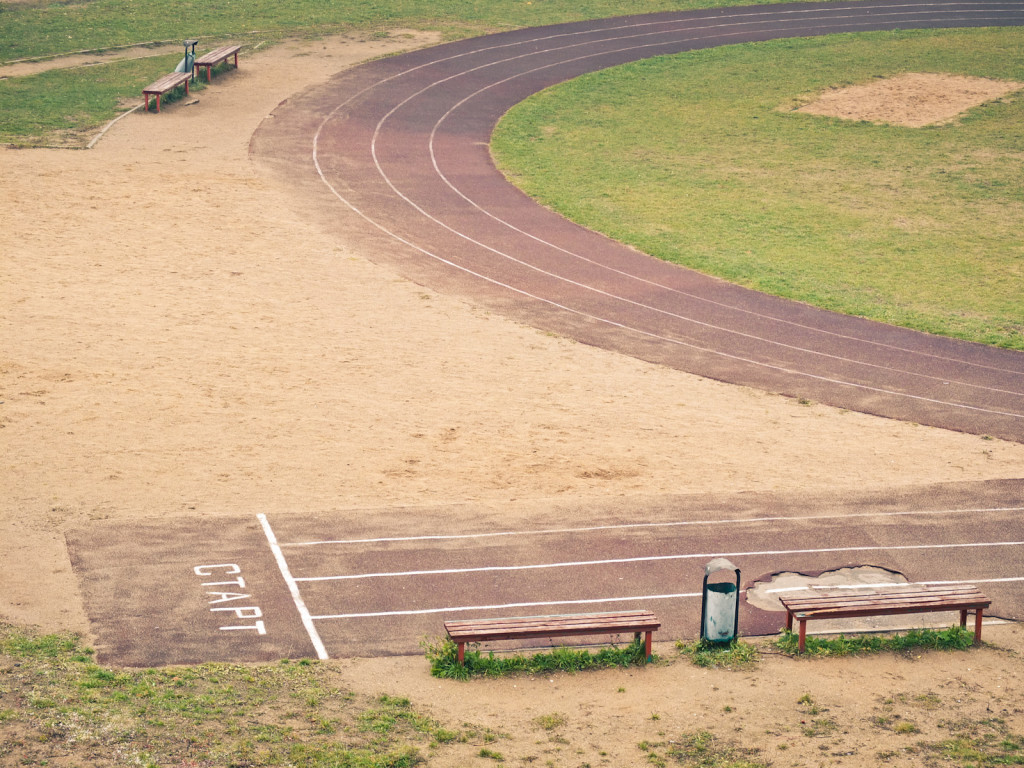
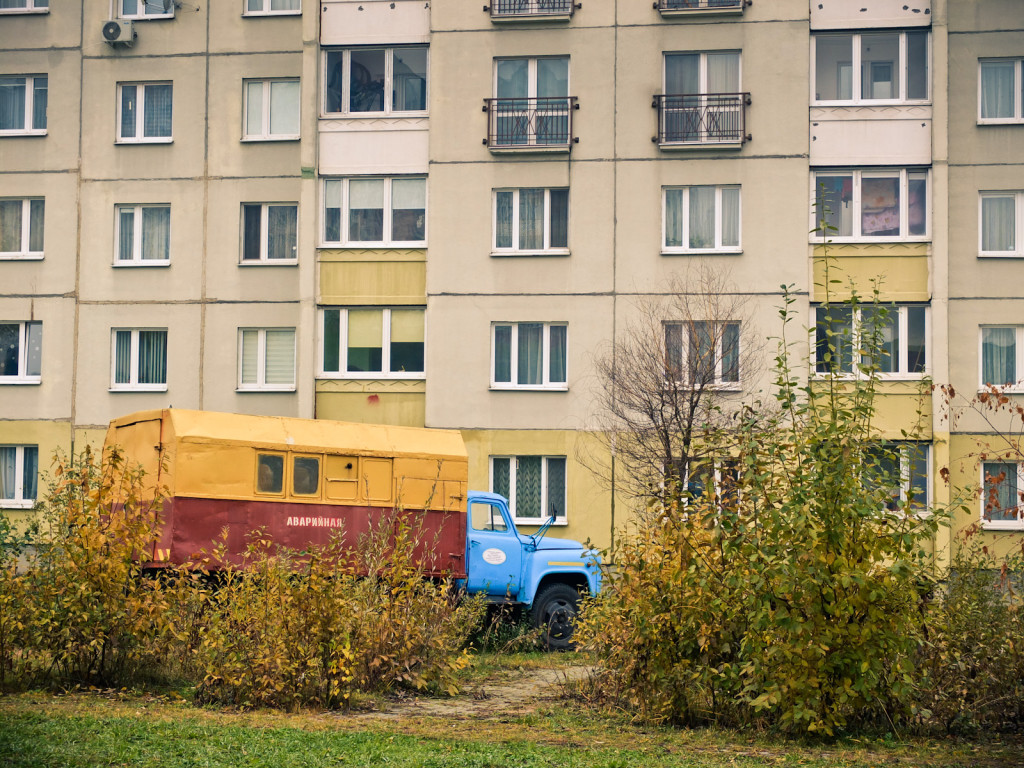
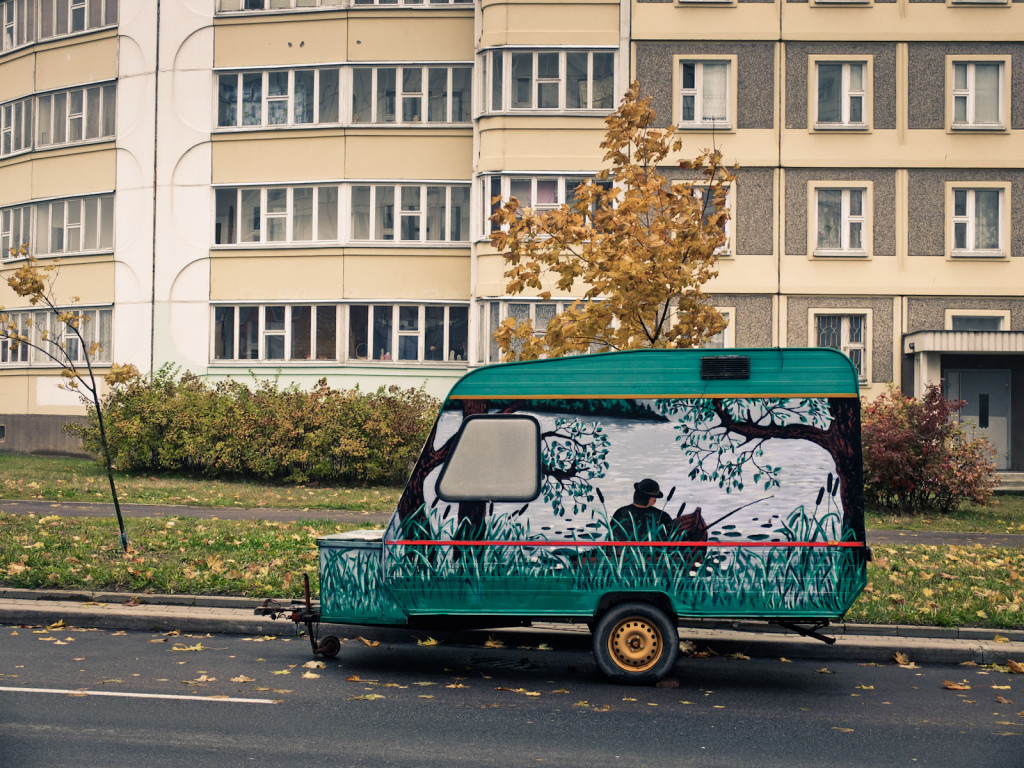
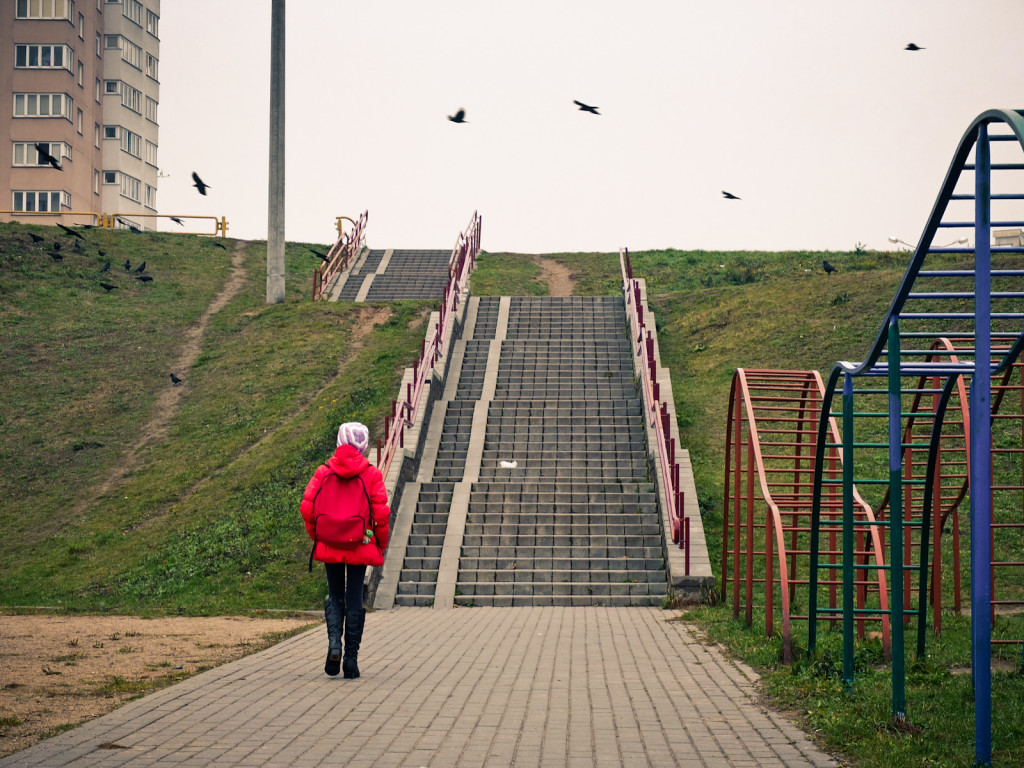

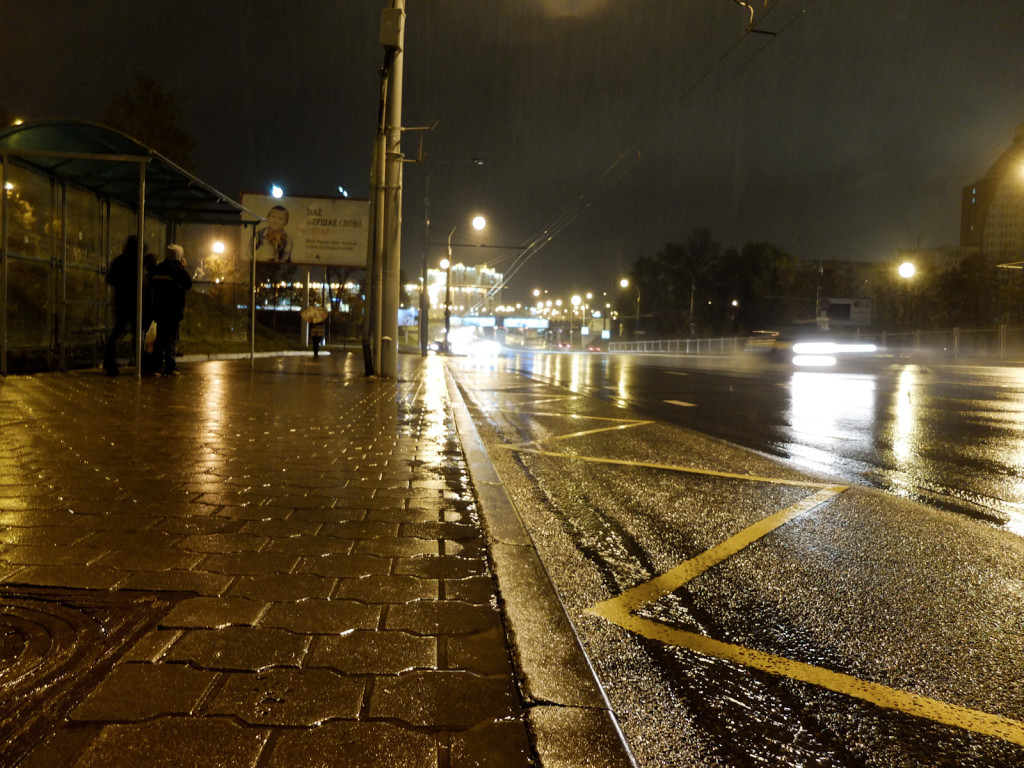
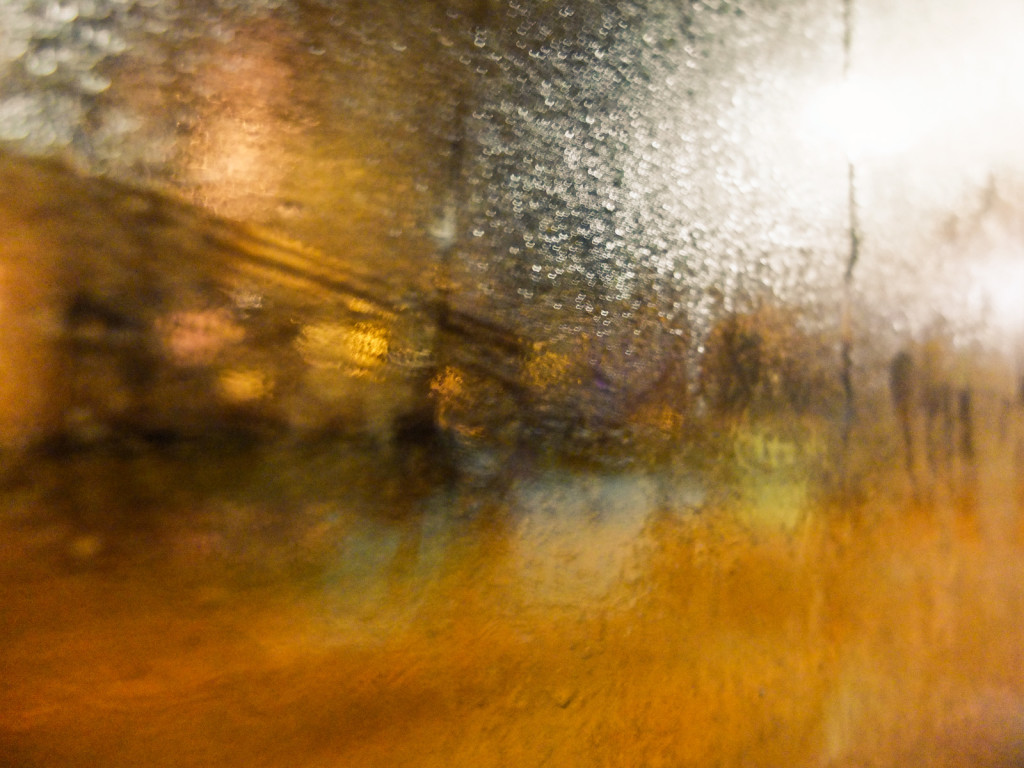
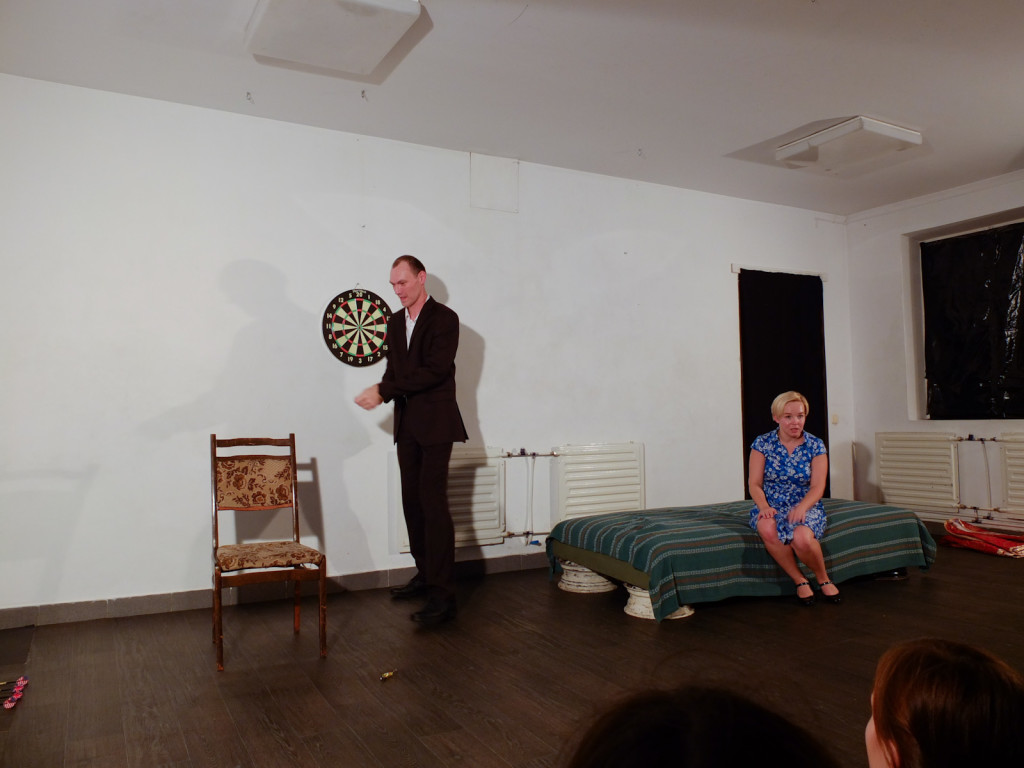
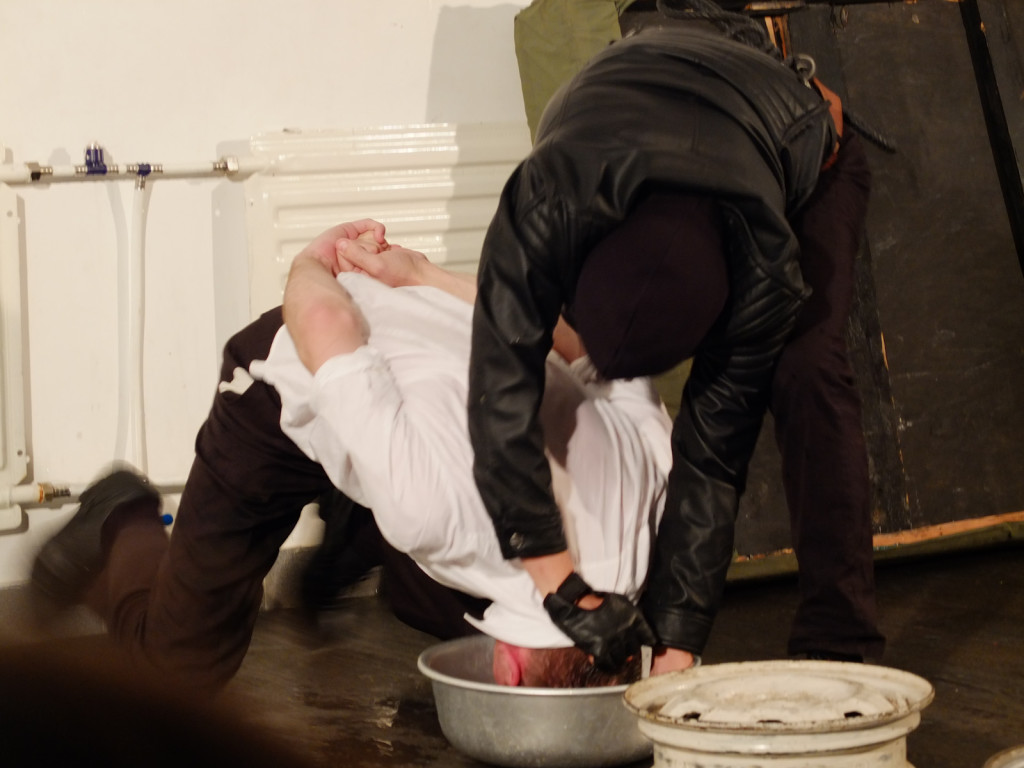
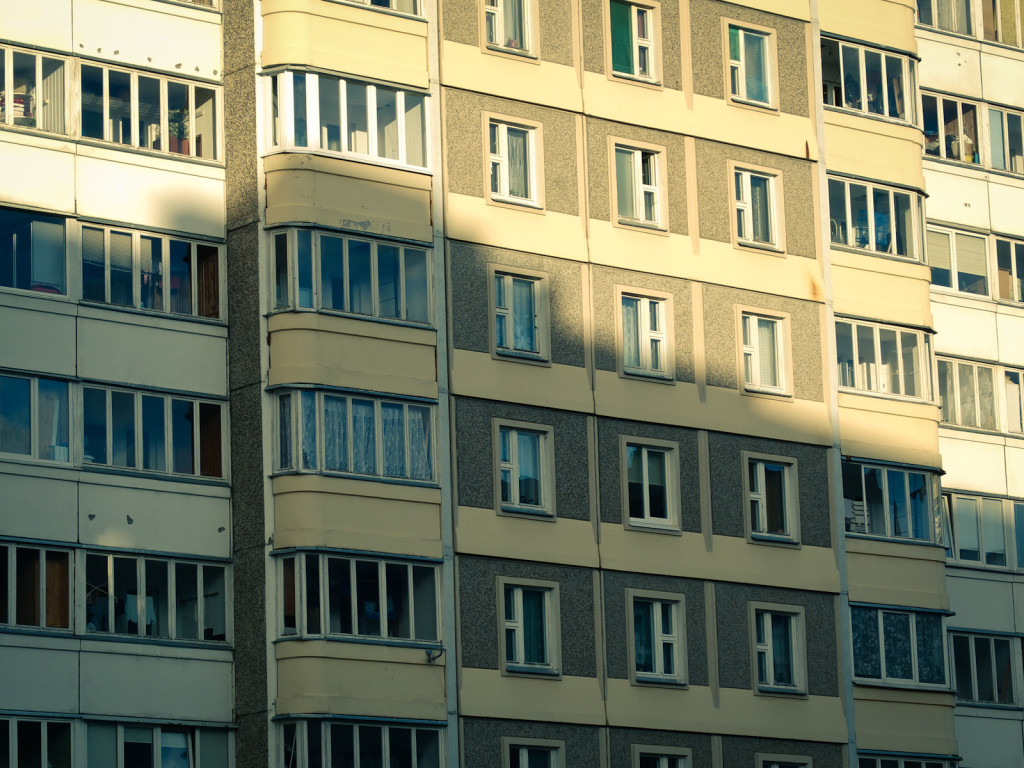
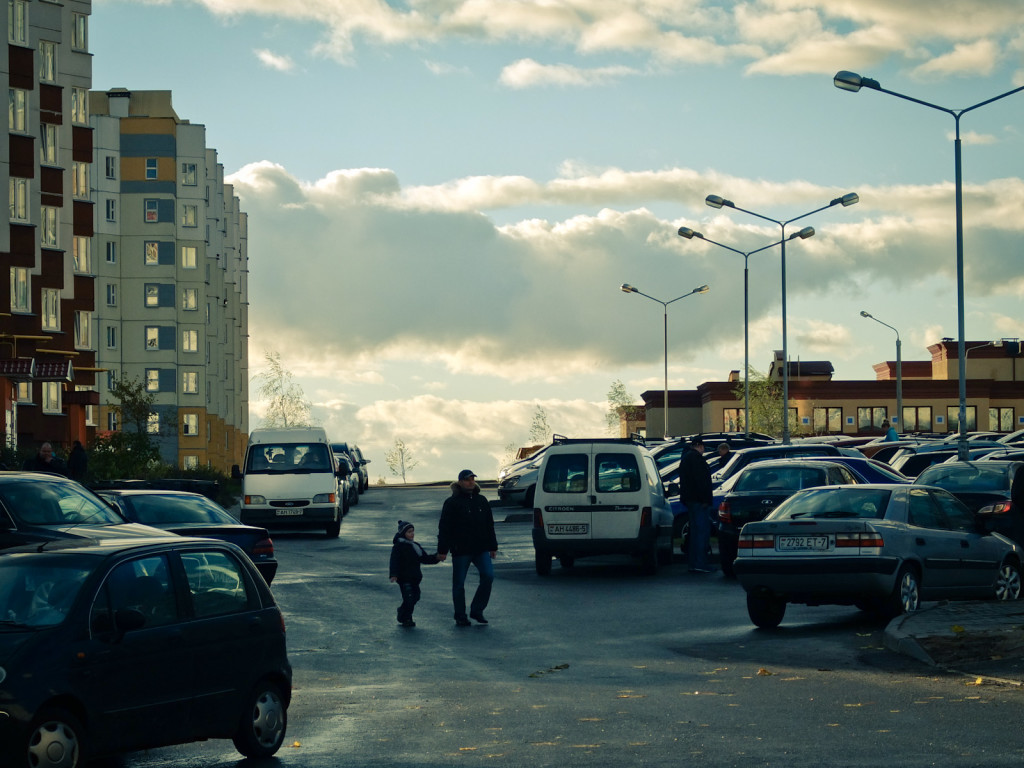
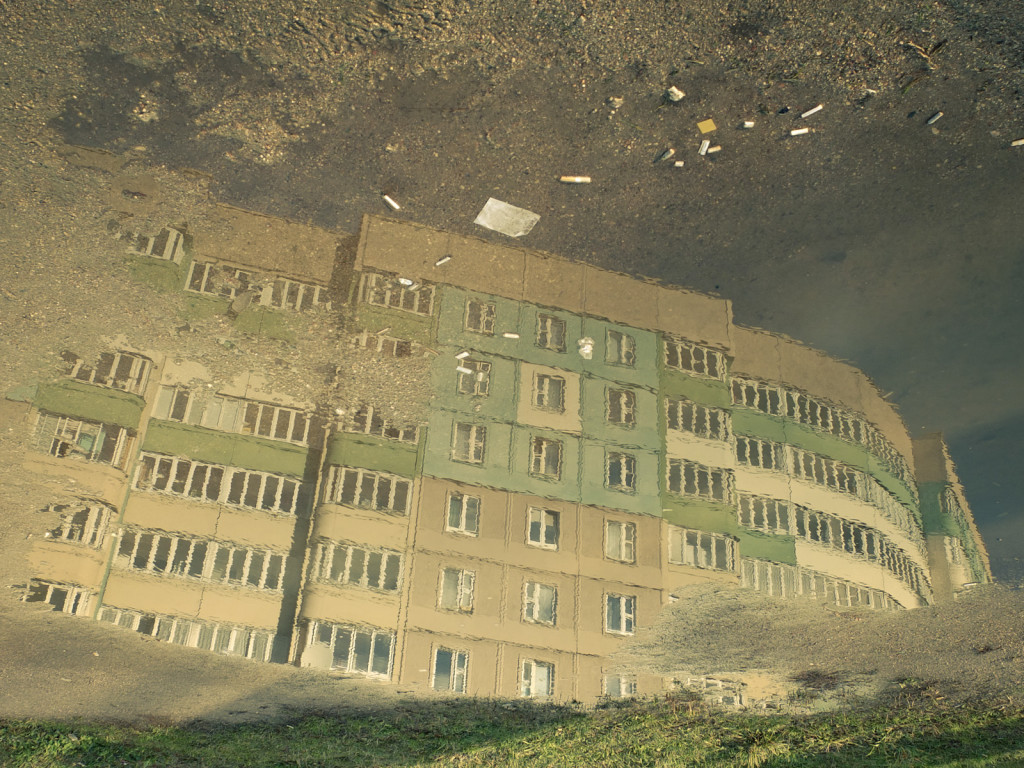

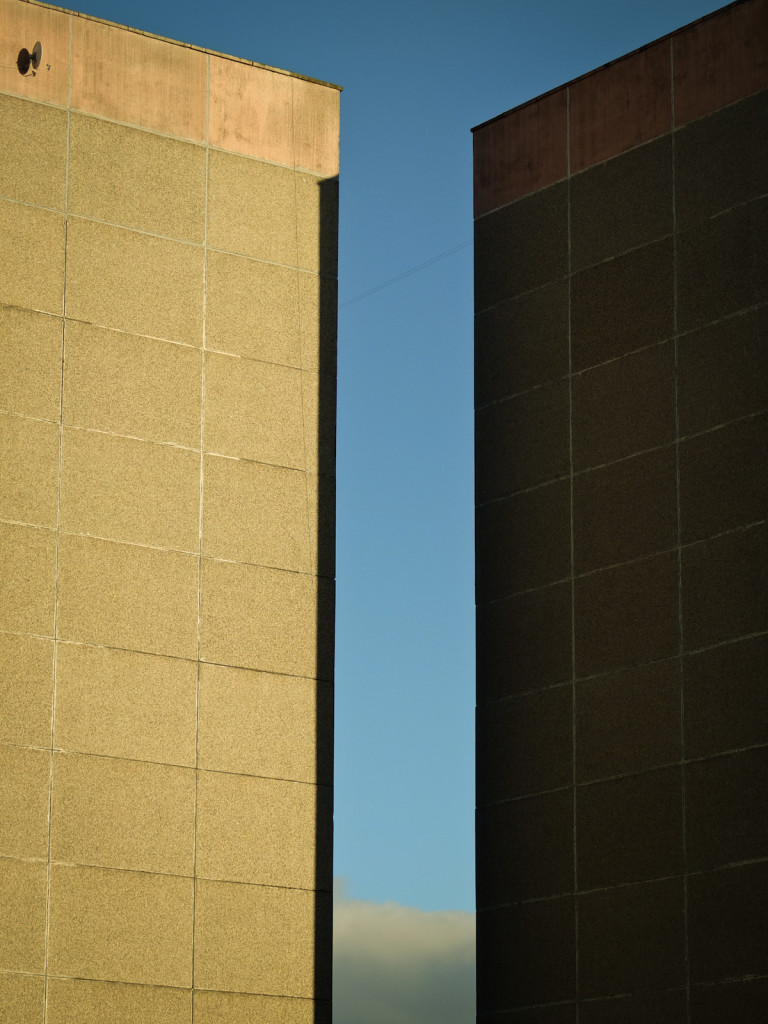
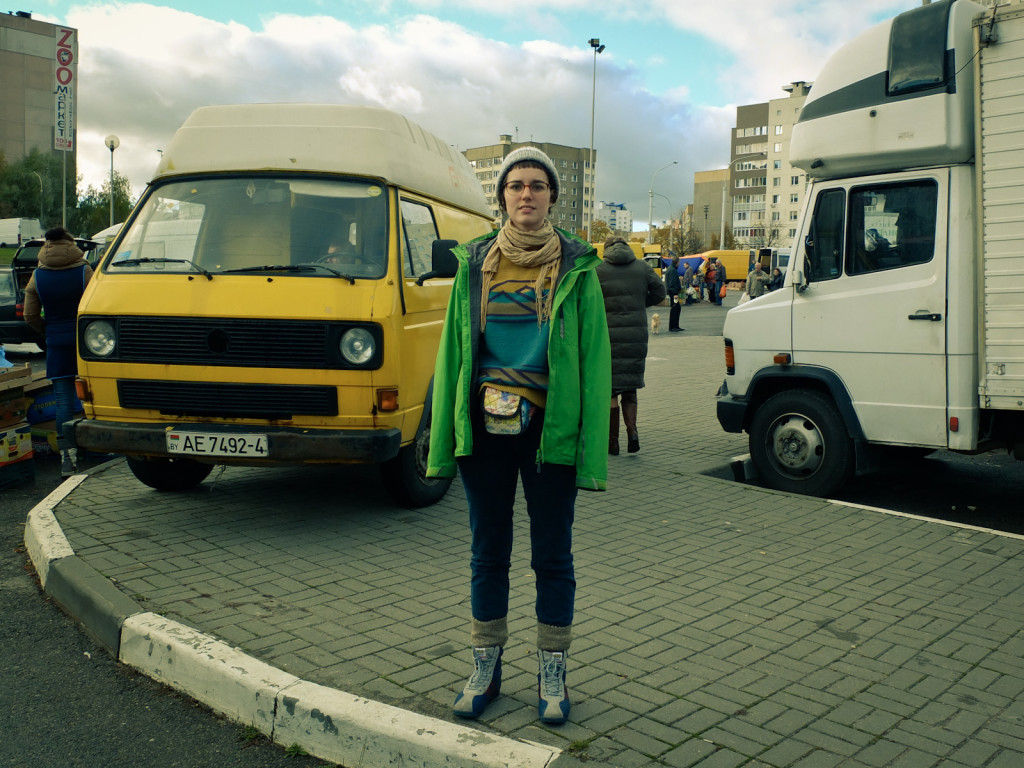
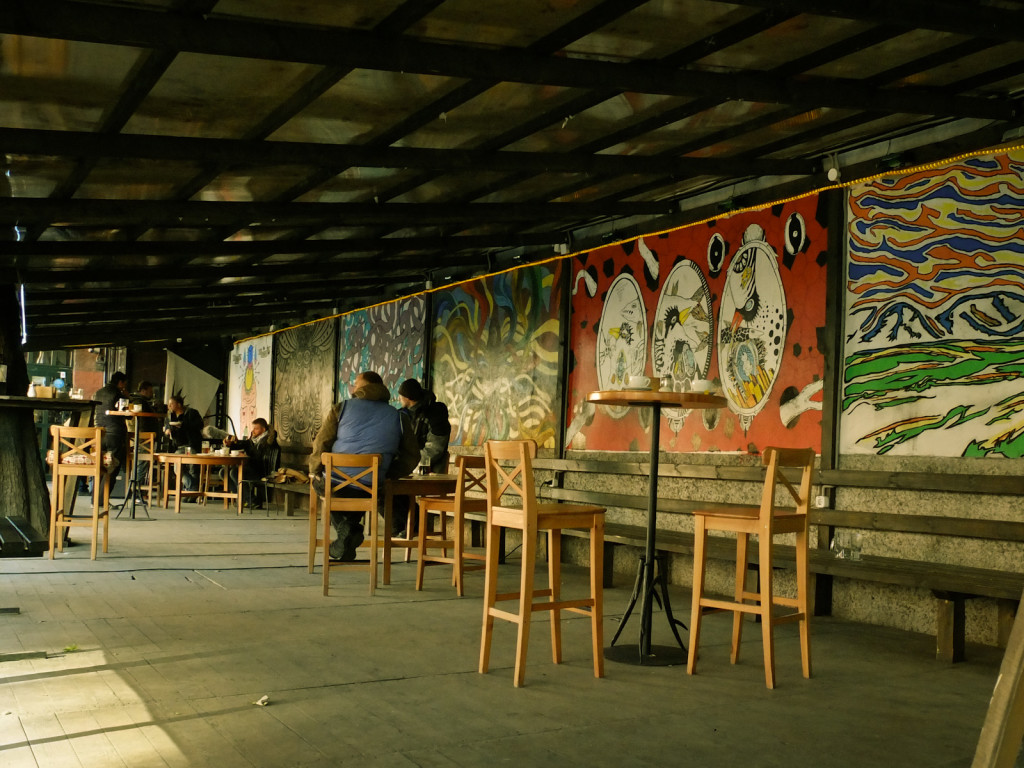
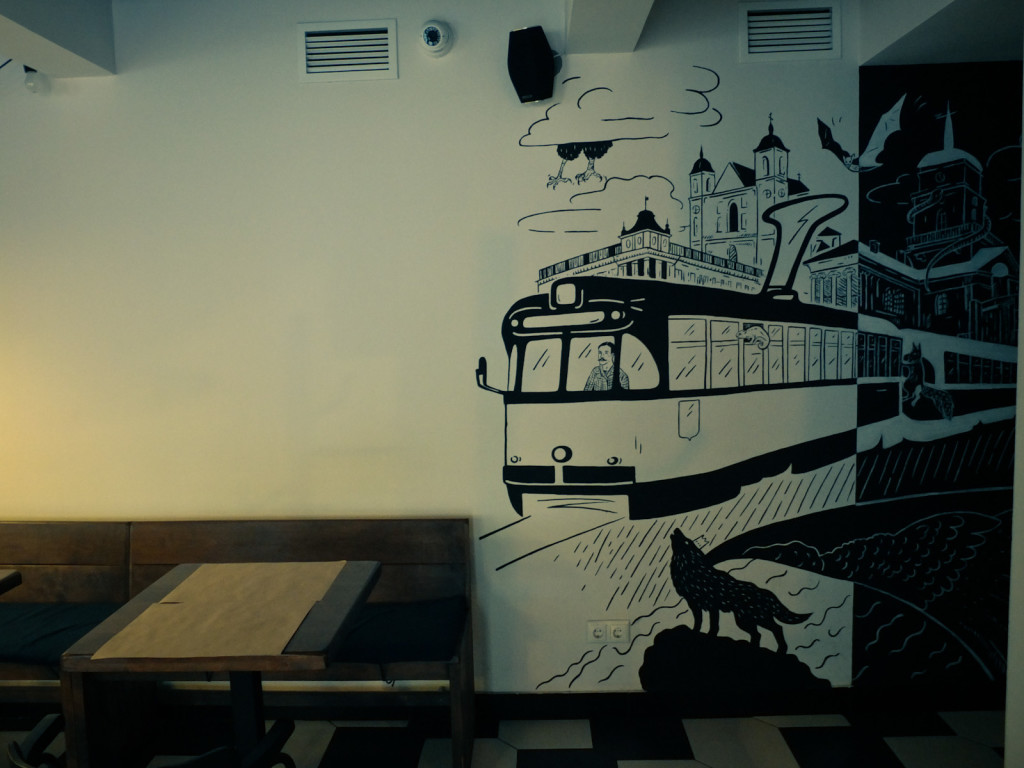
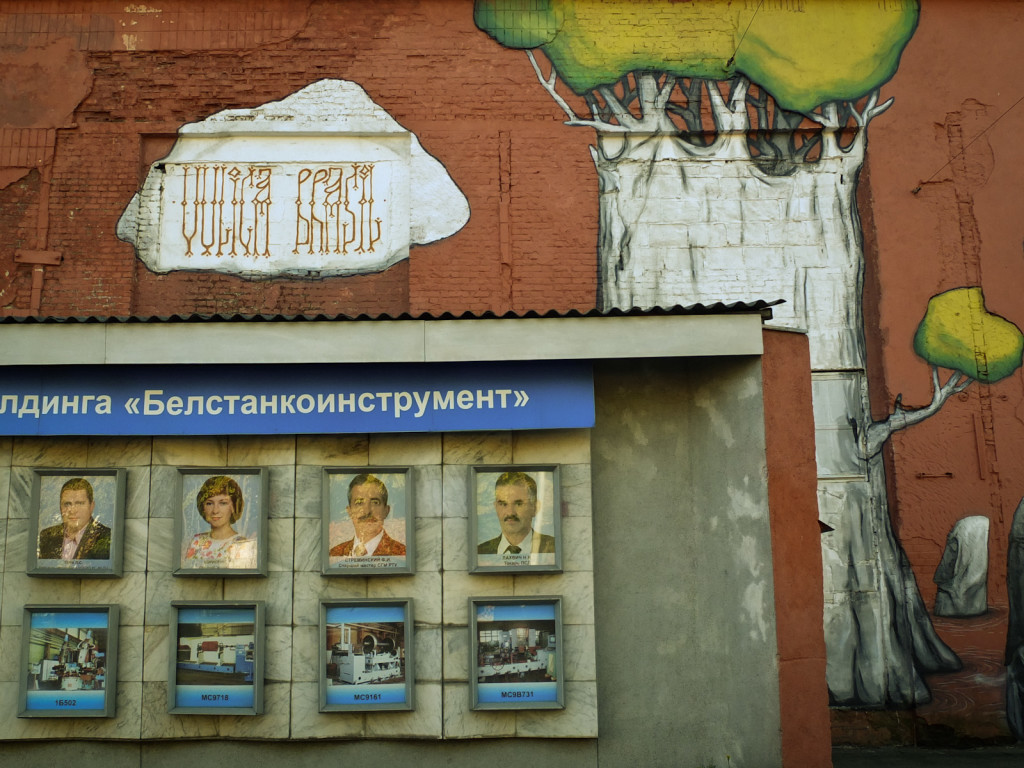
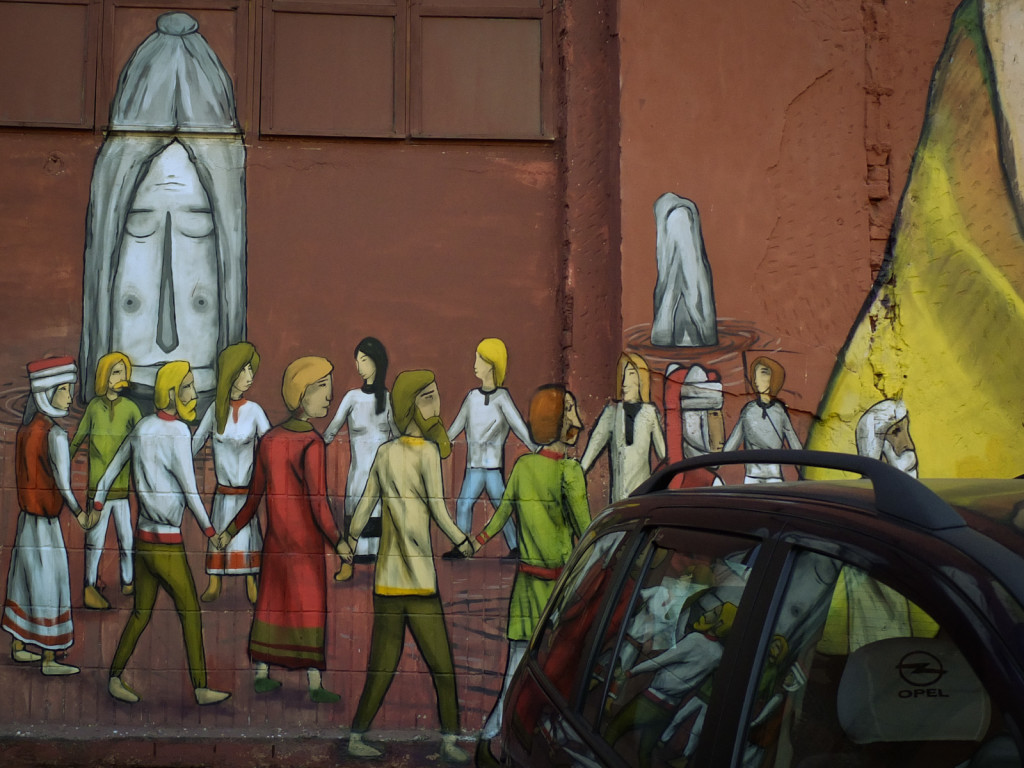
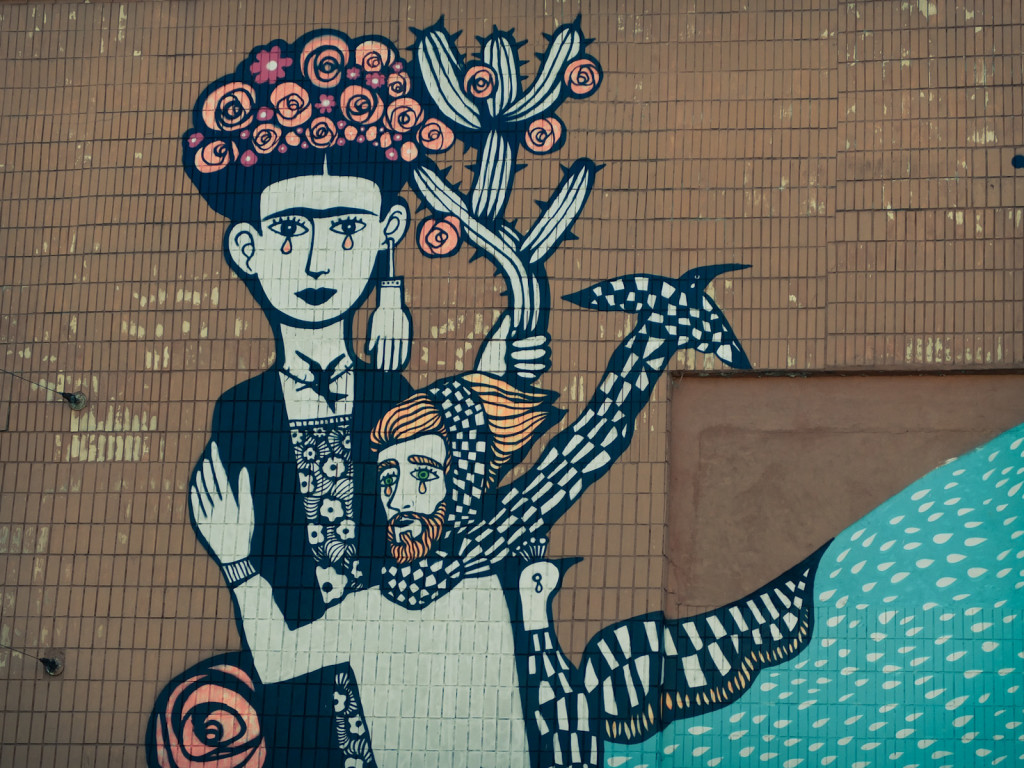

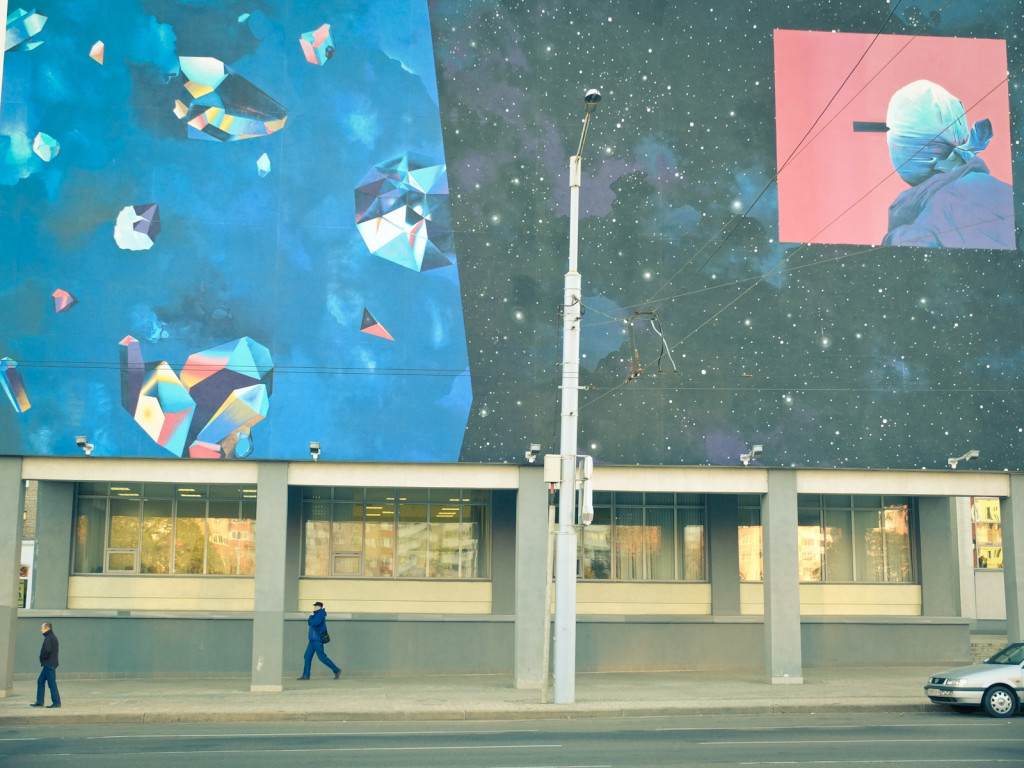
Pingback: Trolley bus: outsider in Belarus • Drop the tension!
Love you guys xxx
very nice photos!
thanks, Lena 🙂